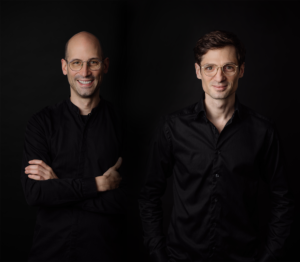When it comes to climate tech, a lot of the ideas that come across our desks are still theoretical or just starting to hit the market. We’re talking about technologies like carbon capture, emerging alternatives to lithium-ion batteries, and bio-plastics that have yet to make a significant impact. However, according to Murray McCaig, managing partner at ArcTern, these are not the types of investments they are looking to make.
The Toronto-based venture firm has recently announced the close of their third and largest fund to date, worth $335 million (USD). With this funding, ArcTern has a clear goal in mind: to fund startups that focus on addressing climate change and can provide quick returns.
“If you’re not making money, you’re not having impact,” McCaig told TechCrunch.
“You might in the future at some point,” the VC conceded, acknowledging firms like Bill Gates’ Breakthrough Ventures, which takes longer-term bets on emerging technologies. However, ArcTern’s focus is on making an impact within the next 10 years, which is the most critical time for reducing global carbon emissions.”
The Intergovernmental Panel on Climate Change has stated that in order to limit global warming to 1.5 degrees celsius, nations must cut their greenhouse gas emissions in half by the end of this decade. This is a crucial target to avoid the most disastrous consequences of climate change, but ideally, emissions should be reduced as much as possible as soon as possible.
For ArcTern, the focus is on startups that use proven technology in innovative ways, while other researchers and investors may be looking at technologies that will take longer to see results.
Of course, there are many ways to decrease emissions that don’t necessarily align with traditional measures of startup success, such as reducing air travel or improving public transit. However, ArcTern has identified decarbonizing mobility as a key area of focus.
Despite recent slowdowns in electric vehicle sales, McCaig is confident that North America is on the verge of a significant tipping point. He believes that EV adoption will take off rapidly, as it has in Norway.
ArcTern has already made bets on transportation startups, including Seattle-based battery analytics company Recurrent and Los Angeles-based battery-electric commercial vehicle maker Harbinger Motors.
“Of course, not everyone will see the same tipping point in a particular sector,” McCaig acknowledges. “For example, the future of hydrogen-powered passenger vehicles is still uncertain. Will we soon see hydrogen fueling stations popping up everywhere, or is it just a pipe dream?”
In addition to their Toronto headquarters, ArcTern also has teams in San Francisco and Oslo. According to McCaig, climate tech is more global than other industries, such as AI and software, which tend to be concentrated in California.
Investors in ArcTern’s latest fund include TD Bank and Credit Suisse. This joins their previous funds of $150 million (USD) and $30 million, respectively.








